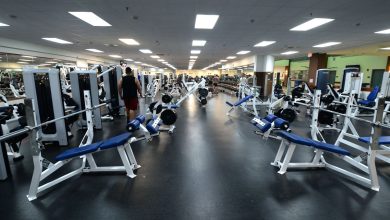ICU Setup at Home for Covid-19 Patients

With hospitals running out of beds and intensive care units (ICU) during covid situations. Families are left with minimal choice but to consider the next best option. Several medical agencies and hospitals have devised a home ICU setup for COVID-19 and package services to treat moderate and critical symptom patients. These are often incorporated with strict supervision of a trained nurse and on-call doctors to keep track of the patient’s recovery and regularly check on the vital health parameters. Here is everything you need to know about ICU care at home for Covid-19 patients.
Who needs ICU care at home during Covid?
An ICU or an intensive care unit at home is suitable for patients with severe or life-threatening illnesses or injuries. For patients suffering from COVID-19, the need for an ICU setup at home depends on the severity and the comorbidities of the symptoms that may need to be managed and monitored regularly. However, ICU setup at home during COVID-19 is advised only as a last resort. If the hospitals cannot provide ICU care to the patient on their premises. Also, intensive care treatment at home is a highly skilled task. Therefore it must be provided only by an expert medical team.
Patients with moderate COVID-19 symptoms can go for screening packages, where home isolation wards are created, with suitable arrangements and necessary medical equipment, such as oxygen machine, pulse oximeter, nebulizer, BiPAP, etc.
What is included in the home ICU setup for COVID-19 patients?
Though there are several packages available now, which accommodate the requirements of COVID-19 patients. A separate assessment of the patient must be made by the doctor to suggest. What kind of ICU equipment will be needed for the care. The standard ICU setup at home for COVID-19 patients includes:
Medical equipment: Since an ICU setup demands technologically advanced medical equipment, the requirement may differ from patient to patient. Usually, ICU beds have a para monitor, alpha mattress, suction machine, nebulizer, IV stand, DVT pump, oxygen concentrator, or an oxygen cylinder. In special cases, ventilators and BiPAP machines are also provided.
Power backup: ICUs need heavy power backup as too much equipment is interconnected with the bed like para monitors, alpha mattress, oxygen cylinder, etc. Therefore, it is important to have power back in case of any power cut or power fluctuations.
Critical care staff: Depending upon the severity and requirement of the situation, the nursing staff is appointed to take care of the patient’s daily medical needs like administering injections and medicines, handling medical equipment, consultation with doctors, etc.
ICU bed: ICU setups usually come with motorized beds, which help prevent bedsores. Bedsores can result in severe infection, hindering the recovery process.
Measures to Take Before Setting up ICU at Home for COVID-19 Patients
- Ensure that the nursing staff is licensed and has experience using ICU equipment in hospitals before. They should be trained enough to handle emergencies and ensure they have all the vital supplies and medications.
- The room where the ICU setup is done. The patient is kept should be cleaned at least twice a day and should maintain good hygiene at all times.
- Choose an agency that can provide 24×7 ambulance services in case of an emergency and give access to enlisted doctors. Who can provide the right treatment to the patient without wasting time.
- Proper measures must be taken to keep the patient isolated.
- ICU beds at home should have a nimbus or alpha mattress to avoid bedsores, and this is usually included in the package.
Why are ICUs so important during COVID-19?
Patients who have COVID-19 and are severely affected need a higher level of care than regular ICU patients. They might need a ventilator or other life-saving equipment and require the attention of multiple care providers. Coronavirus patients also tend to have more prolonged ICU stays. On average, if you come in with pneumonia, heart failure, or a heart attack and need a ventilator, you are on it for just a couple of days. But with COVID, the shortest stay is 7-10 days, and some are on ventilators for 50, 80, even 100 days. Medical Institutes also provide medical equipment for rent and purchase to help covid patients control and detect mild symptoms at home.




